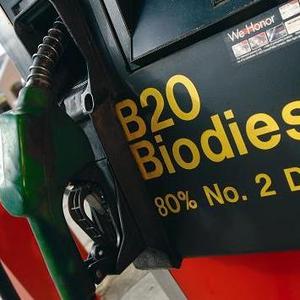Wyo. imposes 24-cent-per-gallon tax on alternative fuels

March 4, 2015
BY Ron Kotrba
Wyoming Gov. Matthew H. Mead recently signed a bill (HB0009) into law imposing a fuel tax on previously exempt alternative fuels such as biodiesel and ethanol. The new rate of taxation on alternative fuels beginning July 1 is 24 cents per gallon, the same rate gasoline and diesel are taxed.
The bill covers a large number of alternative fuels, from commonly used sources like corn ethanol and biodiesel to compressed natural gas.
“The cost of maintenance and upkeep of Wyoming’s highways should be shared by all users,” Seth Waggener, a communications consultant with the governor’s office, told Biodiesel Magazine. “The governor believes this bill accomplishes this objective.”
Advertisement
The U.S. biodiesel industry is facing significant challenges from federal policy uncertainty, and many state incentives and programs are helping keep some producers afloat. When asked why the governor signed a bill that could hinder biodiesel consumption in Wyoming, Waggener said, “All highway fuels are subject to this ‘user tax,’ and all have their unique challenges with federal policy.”
Advertisement
Related Stories
Metro Ports on April 8 announced significant environmental milestone in its voluntary efforts to reduce greenhouse gas emissions. By switching to renewable diesel, the organization reduced its carbon emissions by 85%.
The Michigan Advanced Biofuels Coalition and Green Marine are partnering to accelerating adoption of sustainable biofuels to improve air quality and reduce GHG emissions in Michigan and across the Great Lakes and St. Lawrence Seaway.
A small but increasing amount of biodiesel in the United States is consumed in the residential, commercial, and electric power sectors, according to new estimates now published in the U.S. EIA’s State Energy Data System.
IAG and Microsoft are extending their 2023 co-funded purchase agreement for SAF by five years. The SAF used under the agreement will be produced by Phillips 66’s Humberside refinery and LanzaJet’s facility in the U.S.
Neste and DB Schenker, a logistics service provider, have collaborated to work towards expanding DB Schenker’s adoption of Neste MY Renewable Diesel in Asia-Pacific. DB Schenker trialed the fuel from December 2024 to February 2025 in Singapore.
Upcoming Events










